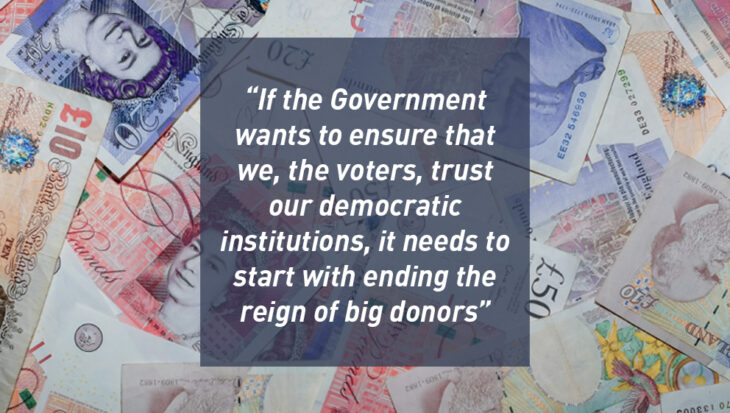Following a request by the Culture Media and Sport committee, Facebook has revealed the EU referendum adverts paid for by Vote Leave and created by Aggregate IQ.
In the modern world of campaigning, political parties and campaigns can use social media sites to target you with specific adverts, tailored to your interests and behaviour online. Competing parties can target mums and dads with adverts laying out their education policies, for instance.
These developments could help political engagement by showing the impact voting will have on each voter’s everyday lives. But as voters only see the adverts targeted at them, it means campaigners can promise different, opposing, things to different people. Or even spread disinformation without others knowing.
[bctt tweet=”As voters only see the adverts targeted at them, it means campaigners can promise different, opposing, things to different people. Or even spread disinformation without others knowing.” username=”electoralreform”]
Making campaigns publish their adverts in an online archive would mean they couldn’t promise one thing to one group of voters and the opposite to another. And voters could do their own research by comparing ads on the same topic between the different parties.
We can start this process now. As a first step in this direction and in the interests of openness, Facebook should also release the adverts created by Britain Stronger In.
But revealing adverts years after the vote is years too late. All official online political adverts should be open to scrutiny during the campaign, with the Electoral Commission collating these soon after they go live.
[bctt tweet=”All official online political adverts should be open to scrutiny during the campaign, with the Electoral Commission collating these soon after they go live.” username=”electoralreform”]
There’s a worrying loophole in Britain’s outdated campaign rules, however. Online political adverts don’t have to carry an ‘imprint’. Printed materials like leaflets and posters have to carry the name and address of the printer, promoters and who the leaflet is being published on behalf of. It means if you get a leaflet through your door, you know who it is from and who to complain to.
[bctt tweet=”Online adverts should abide by the same rules as paper leaflets – where voters can save them, compare them and hold politicians to account for the things they say.” username=”electoralreform”]
We’re asking that online adverts abide by the same rules as paper leaflets – where voters can save them, compare them and hold politicians to account for the things they say. After all, we should know who is funding and channelling our political debate.
Over the weekend, nearly 5,000 people have signed our petition calling for an end to this loophole.
Voters on all sides deserve to know who is paying for online campaign adverts – and why we’re being targeted.
It’s time we brought the law up to date, so campaigns are transparent about who’s paying for our politics, and why.
We’re working hard to point out that transparency should be the rule, not the exception.
Sign our petition ->


